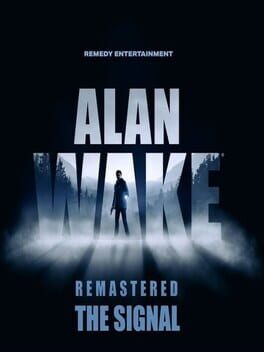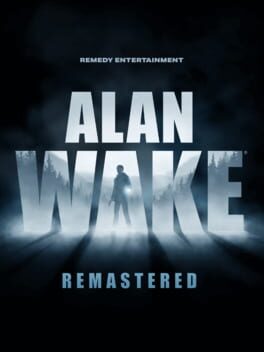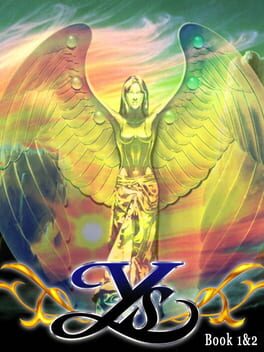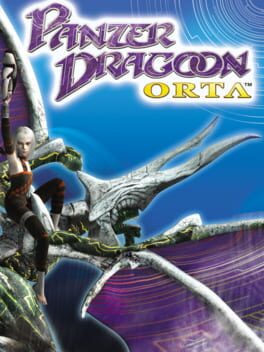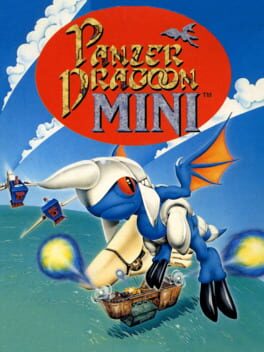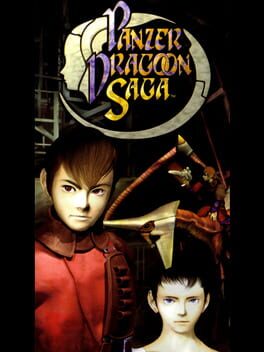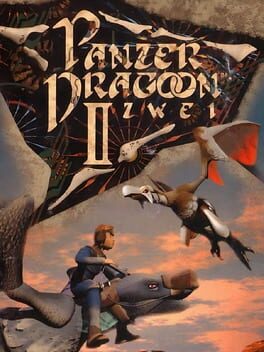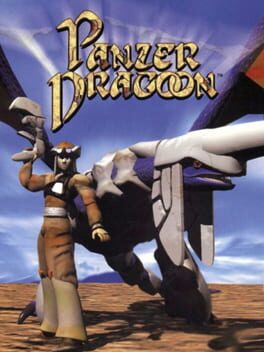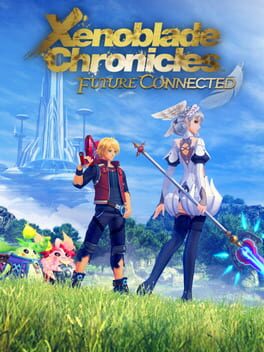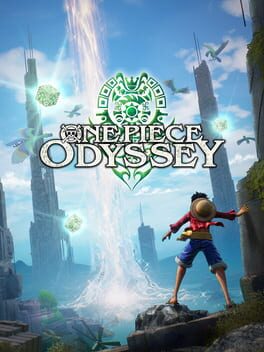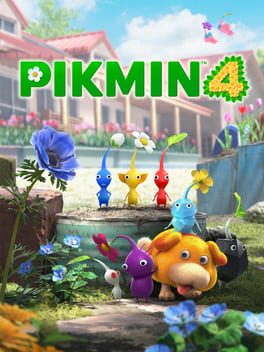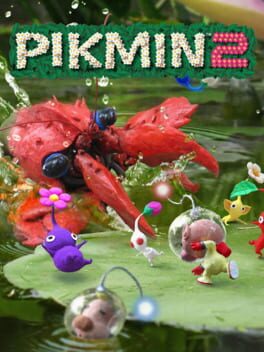dalt
BACKER
honestly considerably better than the base game! i think this dlc does a really solid job making an interesting story out of asset reusage and it has some cool ludonarrative play going on with the GPS. the combat still isn't very good but i think they make better use of the flashlight mechanics here and the setpieces encourage the player to do things other than shoot down waves of enemies much more often.
2021
unfortunately doesn't really live up to the works it keeps reminding you it's inspired by. i love twin peaks, and i like the twilight zone a bit as well, but what i like about both of those works is the dense symbolism, story beats that work emotionally before logically, and the societal messaging. alan wake's story doesn't really have any of those things? it's not flat-out badly written at all, but i was left disappointed with the story because it shoots really high and keeps reminding you of that... but it doesn't really pan out into much more than a pretty uninteresting dark vs light contemporary fantasy story. there's some interesting stuff it could get into regarding writer's block and death of the author, but alan wake doesn't get too far into that, which is a real shame. i'd be able to get past this stuff if the game wasn't so obsessed with reminding you that it's supposed to be like twin peaks (seriously? the lamp lady? cmon), and i'm not holding this stuff against remedy's future installments bc there are definitely some flashes of brilliance occasionally here, just not enough to carry the story above average to me. character writing is great here though, very enjoyable and likable. when the game takes itself less seriously and allows that stuff to shine, the story is pretty fun.
as for gameplay, alan wake is a mixed bag for sure. the light system is innovative and a pretty cool idea, but enemies take too long to kill for how many the game throws at you, and the game pretty frequently forces you to kill a group of enemies before moving on. i don't think making a survival horror game more actiony is a bad idea inherently, but the waves upon waves of enemies feel present more to waste your time than to provide scares, and i never really found myself running out of resources and feeling unempowered. the hordes of enemies also feels very awkwardly integrated with the story, as it's a suuuper corny zombie-movie esque gameplay style that is being put up next to a (generally) dead serious surreal horror story. outside of the combat though, there are some interesting ideas here. alan wake is much more open than you'd expect for a cinematic set-piece type of game, which is pretty cool. i don't really find the forest setting most of the game takes place in to be too fun to explore, but i do respect the effort and i think the player is well-incentivized to engage w their environment through stuff like the manuscript pages.
always cool to get more story in a game like this, especially considering the focus of the story here.
as for gameplay, alan wake is a mixed bag for sure. the light system is innovative and a pretty cool idea, but enemies take too long to kill for how many the game throws at you, and the game pretty frequently forces you to kill a group of enemies before moving on. i don't think making a survival horror game more actiony is a bad idea inherently, but the waves upon waves of enemies feel present more to waste your time than to provide scares, and i never really found myself running out of resources and feeling unempowered. the hordes of enemies also feels very awkwardly integrated with the story, as it's a suuuper corny zombie-movie esque gameplay style that is being put up next to a (generally) dead serious surreal horror story. outside of the combat though, there are some interesting ideas here. alan wake is much more open than you'd expect for a cinematic set-piece type of game, which is pretty cool. i don't really find the forest setting most of the game takes place in to be too fun to explore, but i do respect the effort and i think the player is well-incentivized to engage w their environment through stuff like the manuscript pages.
always cool to get more story in a game like this, especially considering the focus of the story here.
totally understand why this is put on such a pedestal and works for so many people but i really don't think it's for me. the bosses are pretty hit or miss to me, with many of them having solutions i could easily understand, but couldn't easily execute on. the prime example i'd say is the 15th colossus, where you can clearly tell you're supposed to climb up the sides of the arena, and you can clearly tell you're supposed to get it to dislodge rocks you can see in the ceiling, but the game is overly specific about where you need to be to do so, leading to the player kind of just trial and erroring the correct position. it's far from bad boss design, but it makes the limitations of the game very obvious, which is a feeling i had all over SOTC. i assume a lot of people probably played this on the PS3 remaster or on a non-hardware accurate emulator, because woo boy this game has very noticeable performance issues. i normally don't complain about this sort of thing, but drops are constant, sometimes just being the result of moving the camera around. i get the feeling that this wouldn't be considered shippable today. the lighting is also a great idea that gives a lot of emotional weight... but the implementation leads to the player being unable to see where they're going or what they're doing a lot of the time. the atmosphere is still gorgeous, but ico also had gorgeous atmosphere and felt far more complete and considered than this, to me.
2001
i don't think it's any secret that games tend to be best at communicating through experience, and ico understands this excellently. you don't need this bond explained through text, and you don't need your goals exposited here. the oblique narrative on display is emotionally engrossing and guides the player's actions very effectively, while giving you a lot of stuff to guess about and discuss with other players. in most games, it would feel pretty silly ending off with a "fin", but i think ico's storytelling has more in common with european arthouse filmmaking than it does with other games, so it feels on-point. i did feel like the last quarter of the game didn't feel as thoughtful and considered as what preceded it, though, and the combat doesn't feel like much more than a waste of time. there needs to be some sort of a threat for this narrative to function, sure, but i feel like ico would almost be better off if you couldn't fight at all.
also, please change the cover for this game on here, jeez. why is it still using a boxart that is literally infamous for being misrepresentative and ugly
also, please change the cover for this game on here, jeez. why is it still using a boxart that is literally infamous for being misrepresentative and ugly
1989
kind of interesting to play from a historical perspective but definitely has some issues. this game has an exceptionally bland story. could have been ripped right from a 15 yo dungeon master's notes. the music is nice but considering in both book 1 and 2 you spend about half the game in a single area you're probably going to get tired of a lot of the tracks.
bump system is the defining mechanic w these games aaaand it's kinda whatever. i think it's less engaging than standard turn based combat and feels more stat-checky. in every situation where i got stuck it wasn't because i wasn't dodging or bumping well enough, it was because i didn't have a key item or was underleveled. grinding in this game is much less fun than in a standard jrpg e.g. dragon quest because you have to have your full attention but you're still not doing anything that's really fun, so it's neither relaxing or engaging. book 1 has kind of comically easy bosses, book 2 is more stacked against the player but doesn't feel like there's much strategic depth added, you just fireball instead of bumping most of the bosses
oh yeah everyone in this game calls all enemies "goons". it's very funny. some of the lock and key stuff is also pretty silly in a way i found charming ("yeah sorry i lost this magic orb guess i have a hole in my pocket or something")
bump system is the defining mechanic w these games aaaand it's kinda whatever. i think it's less engaging than standard turn based combat and feels more stat-checky. in every situation where i got stuck it wasn't because i wasn't dodging or bumping well enough, it was because i didn't have a key item or was underleveled. grinding in this game is much less fun than in a standard jrpg e.g. dragon quest because you have to have your full attention but you're still not doing anything that's really fun, so it's neither relaxing or engaging. book 1 has kind of comically easy bosses, book 2 is more stacked against the player but doesn't feel like there's much strategic depth added, you just fireball instead of bumping most of the bosses
oh yeah everyone in this game calls all enemies "goons". it's very funny. some of the lock and key stuff is also pretty silly in a way i found charming ("yeah sorry i lost this magic orb guess i have a hole in my pocket or something")
2002
i technically didn't finish bc my xbox emulator will no longer load my save for this game for whatever reason but wow i found this really disappointing.
following up on saga's ending is a fool's errand by nature, but the way they do it feels like it just totally spits on what that game was trying to say, and it gives me a terrible taste in my mouth. going from a game that is all about how history shouldn't rule us, a game that provides a very definitive and satisfying end, and just... resetting the world to be even worse than when we last saw it is so uninspired and lazy. it's not even worse in a way that's interesting. what was the point of anything i did in saga if this is how the world is supposed to turn out? i can appreciate that they tried at all here, because the easy thing to do would have been to just make a reboot or a prequel or even just ignore the story entirely, but the story here doesn't justify it's own existence and takes up far more time than the story in the original 2 rail shooter games.
the soundtrack isn't anything special compared to the saturn trilogy, and by default the sound effects are about 3 times as loud as the music, so i think they might have been aware of this, lmao. on the subject of atmosphere, this game's environments are very lush and detailed, but feel lacking in art design compared to the saturn trilogy. orta feels like it's focus is more on providing the audience with as much stuff to look at as possible, so these environments are extremely dense and lifelike, but don't feel as though they have the melancholic tone that i loved so much in zwei and saga especially. the lack of pastel tones in favor of a lot of browns is especially noticeable, to me. it's a shame because the concept art for this game is wonderful, especially all of the art of orta's design, but it doesn't translate in-game.
to me, PD's appeal as a franchise is heavily rooted in it's lore and atmosphere, so we're already not off to a great start, but the real issue to me with orta is the gameplay. first off, orta is a very, very hard game. i'd say i'm an average level video game player, and i did fine in PD1 and 2, but orta outright kicked my ass, and not in a way that made me want to keep coming back. as i mentioned earlier, orta feels as though it's designed to overwhelm the player with visual noise, which leads to a lot of points when i lost health to things i couldn't even identify, or boss mechanics that I still don't really know how to counter. i could not fucking tell you what the second phase of the episode 8 boss actually does, to this day, man. bosses also feel like they had at least twice as much health than what was normal in the previous games, even mid-bosses for some reason. normal mode here feels more on par with the hard modes in previous panzer dragoons, whereas easy is maybe the easiest game in the franchise apart from saga, solely because you sponge hits easier. an actual middle ground would be greatly preferable to what we have here. the big issue with orta's gameplay, though, is that it's new mechanics feel like they crush the game and make the weaknesses of this genre more apparent than ever before. orta introduces two new mechanics, gliding/braking and transforming your dragon. both of these mechanics are clearly inspired by saga's battle system, which is a cute idea and feels like it should be the natural evolution of panzer dragoon's gameplay, but to me it doesn't feel that they work in tandem. gliding and braking is used to imitate saga's quadrant-based positioning system in boss fights, but these boss fights don't allow you to freely maneuver around the quadrants, instead making some quadrants only available through braking and some only available through gliding. you also can ONLY move to a quadrant by doing these moves, and the energetic nature of the bosses means that you're occasionally blocked off from moving at all, leading to the player feeling trapped and crushed. this is made worse by the fact that the dragon transformation only has glide/brake bars on two of the three dragons, and you cannot freely cycle through transformations, you have to go in a set order. the heavy dragon is the dragon the player is encouraged to use against bosses for dps, and it's also the dragon that cannot glide or brake at all. the glide dragon is much more maneuverable, but does very little damage, cannot lock on, and is recommended to use for the purpose of defense. if you were switching between just these forms, i could see the boss fights being an engaging mix of defensive maneuvering and taking advantage of burst windows, but there's also the normal dragon, which can do a little bit of everything, just not as well as either of the other two. this means you're generally going through at least 2 button presses to get where you're wanting to be in boss fights, and switching on the fly tends to feel clunky and unrefined. all of these limitations imposed on the way the game is played, in addition to the extremely chaotic sensory-overload level design, makes orta feel more blatantly on-rails than either of the previous games did. i found myself struggling against the game very often, which is never a feeling you want the player to have in a franchise that had previously sold itself on the exhilarating feeling of being free in flight. it's a real shame, because the game shows off the promise a true sequel to zwei has in it's 5th level, but it never realizes that promise.
there are two good games here, but those games don't want to play nice with each other.
following up on saga's ending is a fool's errand by nature, but the way they do it feels like it just totally spits on what that game was trying to say, and it gives me a terrible taste in my mouth. going from a game that is all about how history shouldn't rule us, a game that provides a very definitive and satisfying end, and just... resetting the world to be even worse than when we last saw it is so uninspired and lazy. it's not even worse in a way that's interesting. what was the point of anything i did in saga if this is how the world is supposed to turn out? i can appreciate that they tried at all here, because the easy thing to do would have been to just make a reboot or a prequel or even just ignore the story entirely, but the story here doesn't justify it's own existence and takes up far more time than the story in the original 2 rail shooter games.
the soundtrack isn't anything special compared to the saturn trilogy, and by default the sound effects are about 3 times as loud as the music, so i think they might have been aware of this, lmao. on the subject of atmosphere, this game's environments are very lush and detailed, but feel lacking in art design compared to the saturn trilogy. orta feels like it's focus is more on providing the audience with as much stuff to look at as possible, so these environments are extremely dense and lifelike, but don't feel as though they have the melancholic tone that i loved so much in zwei and saga especially. the lack of pastel tones in favor of a lot of browns is especially noticeable, to me. it's a shame because the concept art for this game is wonderful, especially all of the art of orta's design, but it doesn't translate in-game.
to me, PD's appeal as a franchise is heavily rooted in it's lore and atmosphere, so we're already not off to a great start, but the real issue to me with orta is the gameplay. first off, orta is a very, very hard game. i'd say i'm an average level video game player, and i did fine in PD1 and 2, but orta outright kicked my ass, and not in a way that made me want to keep coming back. as i mentioned earlier, orta feels as though it's designed to overwhelm the player with visual noise, which leads to a lot of points when i lost health to things i couldn't even identify, or boss mechanics that I still don't really know how to counter. i could not fucking tell you what the second phase of the episode 8 boss actually does, to this day, man. bosses also feel like they had at least twice as much health than what was normal in the previous games, even mid-bosses for some reason. normal mode here feels more on par with the hard modes in previous panzer dragoons, whereas easy is maybe the easiest game in the franchise apart from saga, solely because you sponge hits easier. an actual middle ground would be greatly preferable to what we have here. the big issue with orta's gameplay, though, is that it's new mechanics feel like they crush the game and make the weaknesses of this genre more apparent than ever before. orta introduces two new mechanics, gliding/braking and transforming your dragon. both of these mechanics are clearly inspired by saga's battle system, which is a cute idea and feels like it should be the natural evolution of panzer dragoon's gameplay, but to me it doesn't feel that they work in tandem. gliding and braking is used to imitate saga's quadrant-based positioning system in boss fights, but these boss fights don't allow you to freely maneuver around the quadrants, instead making some quadrants only available through braking and some only available through gliding. you also can ONLY move to a quadrant by doing these moves, and the energetic nature of the bosses means that you're occasionally blocked off from moving at all, leading to the player feeling trapped and crushed. this is made worse by the fact that the dragon transformation only has glide/brake bars on two of the three dragons, and you cannot freely cycle through transformations, you have to go in a set order. the heavy dragon is the dragon the player is encouraged to use against bosses for dps, and it's also the dragon that cannot glide or brake at all. the glide dragon is much more maneuverable, but does very little damage, cannot lock on, and is recommended to use for the purpose of defense. if you were switching between just these forms, i could see the boss fights being an engaging mix of defensive maneuvering and taking advantage of burst windows, but there's also the normal dragon, which can do a little bit of everything, just not as well as either of the other two. this means you're generally going through at least 2 button presses to get where you're wanting to be in boss fights, and switching on the fly tends to feel clunky and unrefined. all of these limitations imposed on the way the game is played, in addition to the extremely chaotic sensory-overload level design, makes orta feel more blatantly on-rails than either of the previous games did. i found myself struggling against the game very often, which is never a feeling you want the player to have in a franchise that had previously sold itself on the exhilarating feeling of being free in flight. it's a real shame, because the game shows off the promise a true sequel to zwei has in it's 5th level, but it never realizes that promise.
there are two good games here, but those games don't want to play nice with each other.
1996
hey you know that rail shooter series we have? the one that's focused on atmosphere, environmental storytelling, and spectacle?
why don't we try putting it on a console that can't do any of those things
and can't handle a rail shooter
the music is a little cool because it's just an adaptation of zwei's music but basically all of it is misplaced (why am i hearing the music to a snow level in a desert level??)
this game reuses the same midboss in every level but the last lmao
why don't we try putting it on a console that can't do any of those things
and can't handle a rail shooter
the music is a little cool because it's just an adaptation of zwei's music but basically all of it is misplaced (why am i hearing the music to a snow level in a desert level??)
this game reuses the same midboss in every level but the last lmao
1998
panzer dragoon saga is a game with a reputation, to say the least. most of the reviews of saga on this very site spend more time masturbating to the game’s rarity or building up the game’s prestige. this isn’t gonna be that! lol. i really enjoyed my time with PDS, but i don’t really buy into the exclusive narrative that’s been built around it. this isn’t a rare gem shining in the rough, anyone with a computer made in the last decade can go play it right now.
so if panzer dragoon saga isn’t an underrated gem or a masturbatory retro gamer status symbol, what is it? the obvious answer would be that panzer dragoon saga is very unique. members of team andromeda have identified themselves in the years since release as being driven by counter cultural tendencies, wanting to make something fully their own, and that streak of contrarianism certainly does run all over saga. unlike most JRPGs, saga isn’t a character driven game or a plot driven game. saga’s selling point is a lot closer to what we’ve seen in WRPGs that followed it, it’s a game about a lifelike and lore-rich world, where the story is more of an excuse to get the player to engage with it. like the previous PD games, the environmental storytelling is superb, but what i find especially impressive about saga is just how much flavor text is present and just how much detail is thought out for how these imaginary people are able to live. saga is surprisingly textual for a game of its era and with its limitations. for every monster you see, there’s a description of how it’s shell is hollowed out into bowls, or how the stomach is dried into water bags. this focus is refreshing, but it’s also somewhere i could see they could have done more. for a game with such an emphasis on a living world, the way saga handles character interaction is often stilted and limited. a good amount of the playtime in saga is spent in the “village” segments, where the player is essentially exploring populated environments and gathering information, and oftentimes these segments have information that is locked behind talking to characters multiple times or talking to specific characters in a specific order. this means that the pacing of the game, while quick, often feels held up by trial and error. i don’t mind this too much in the main story, because i always enjoyed the dialogue, but it was very deflating to learn that i had missed plenty of side content simply because i hadn’t spent time repeatedly talking to npcs with unchanging dialogue. to me, it also felt disappointing that sidequests were limited in their scope. it feels very cool to go on a hunting mission and solve an environmental puzzle to get medicine to save a villagers life… but it feels a lot less cool when your reward is a stock weapon that you can get anywhere by the time you receive it. i was overjoyed in the few parts of the game when the player is rewarded for exploring with more background information or detail to the world, and wish those types of moments were more common. speaking of background information, saga actually does connect to the rail shooters that preceded it in a lot of really interesting ways, and I appreciate that it didn’t feel as though the game was trying hard to point it out to the audience. they mostly let you connect things yourself in relation to the other two games, which leads to a lot of cool moments that really does make the world feel as though it had always been considered in detail rather than made up as they went along.
one of the things i can give unambiguous praise to in saga is the battle system. i’ve always been a detractor of ATB in the final fantasy games, but saga is able to use its rail shooter roots to iterate on it in a way that makes every encounter engaging. instead of having 1 bar that counts for all options, you have 3, with a standard shot or laser taking up one bar and magic abilities taking up two. in addition, your dragon maneuvers through 4 quadrants around the enemy, with danger and safe zones depending on the enemies position and what attack they’re going for. your standard attacks can be fired with a single button press and can be chained without using up time, meaning effective players will be bobbing and weaving around enemies before unloading their gauges on weak positions. enemy behavior in saga is varied as well, making the player feel as though they’re on a hunt, needing to learn the biology of what they’re up against. in another tradition lifted from the rail shooters, the player is even graded on how well they handle individual encounters, with higher xp gains and item drops given based on better grades, so every encounter is engaging. you never feel like you’re better off brute forcing past the designed strategies, and you never feel like your time is being wasted, which is saying something when dealing with an ATB-like system. my only real complaint with the battle system is that magic feels unnuanced and implemented almost as an afterthought. magic isn’t bad when used against enemies that you don’t fully understand, but it’s not very rewarding to use and many spells just feel like the previous one but stronger. spell descriptions are also extremely unhelpful, giving you basically no hard knowledge for their gameplay application.
i am far from an expert musically but i’ll be damned if this isn’t one of the coolest OSTs i’ve ever heard. an inspired mix of world music and chunky synthesizers, the level of spectacle present in the battles is thankfully matched by the music. the dungeon music is more on the ambient side much of the time, but it’s still wonderful and complements the atmosphere beautifully.
where team andromeda’s countercultural ambitions really hurt the game, i feel, is in the story. sagas story has a very, very strong hook and tons of great ideas. i love the idea of a story where the protagonist is caught in a conflict fought between self-serving factions bickering on the brink of annihilation. i love the idea of the protagonist being more of an unwitting pawn being used by those around him, falling backwards into a political game beyond his understanding. i love the idea of a human weapon learning to be human, and feeling indebted to those who control her. i especially love the core theme of the story, which i won’t spoil here. the issue with PDS’ story is that i don’t feel any of these things. andromeda has been open that it was an active goal to avoid the melodrama that defines franchises like final fantasy in favor of a more subtle and contemplative plot, but i feel that what we get here doesn’t fulfill those intentions well either. the runtime leaves the emotional beats of the story feeling half-hearted and rushed, despite the excellent foundation. a version of panzer dragoon saga with even 2 or 3 more hours of meat to its plot might be worthy of the “best JRPG of all time” title, and what’s here is still very cerebral and thematically interesting, but I find it difficult to analyze a plot that I just don’t care about first. this is especially present in the character of Azel, who the plot revolves around, and is ostensibly intended to be the main character, but has woefully little screentime for how much could have been done with her. the core relationship between her and Edge is no Squall and Rinoa, and it doesn’t need to be, but it’s no Amuro and Lalah either.
all in all, is panzer dragoon saga the best rpg ever made or the most underrated game ever? is it worth 1,200 dollars on ebay? no, i don’t think so. but it is a game that I would wholeheartedly recommend to anyone who is even a little interested, because you will NEVER play a game like this again. saga is always happy to dance to the beat of its own 32-bit african-tribal-inspired drum. with synth flutes in the background. and lasers all over the screen.
so if panzer dragoon saga isn’t an underrated gem or a masturbatory retro gamer status symbol, what is it? the obvious answer would be that panzer dragoon saga is very unique. members of team andromeda have identified themselves in the years since release as being driven by counter cultural tendencies, wanting to make something fully their own, and that streak of contrarianism certainly does run all over saga. unlike most JRPGs, saga isn’t a character driven game or a plot driven game. saga’s selling point is a lot closer to what we’ve seen in WRPGs that followed it, it’s a game about a lifelike and lore-rich world, where the story is more of an excuse to get the player to engage with it. like the previous PD games, the environmental storytelling is superb, but what i find especially impressive about saga is just how much flavor text is present and just how much detail is thought out for how these imaginary people are able to live. saga is surprisingly textual for a game of its era and with its limitations. for every monster you see, there’s a description of how it’s shell is hollowed out into bowls, or how the stomach is dried into water bags. this focus is refreshing, but it’s also somewhere i could see they could have done more. for a game with such an emphasis on a living world, the way saga handles character interaction is often stilted and limited. a good amount of the playtime in saga is spent in the “village” segments, where the player is essentially exploring populated environments and gathering information, and oftentimes these segments have information that is locked behind talking to characters multiple times or talking to specific characters in a specific order. this means that the pacing of the game, while quick, often feels held up by trial and error. i don’t mind this too much in the main story, because i always enjoyed the dialogue, but it was very deflating to learn that i had missed plenty of side content simply because i hadn’t spent time repeatedly talking to npcs with unchanging dialogue. to me, it also felt disappointing that sidequests were limited in their scope. it feels very cool to go on a hunting mission and solve an environmental puzzle to get medicine to save a villagers life… but it feels a lot less cool when your reward is a stock weapon that you can get anywhere by the time you receive it. i was overjoyed in the few parts of the game when the player is rewarded for exploring with more background information or detail to the world, and wish those types of moments were more common. speaking of background information, saga actually does connect to the rail shooters that preceded it in a lot of really interesting ways, and I appreciate that it didn’t feel as though the game was trying hard to point it out to the audience. they mostly let you connect things yourself in relation to the other two games, which leads to a lot of cool moments that really does make the world feel as though it had always been considered in detail rather than made up as they went along.
one of the things i can give unambiguous praise to in saga is the battle system. i’ve always been a detractor of ATB in the final fantasy games, but saga is able to use its rail shooter roots to iterate on it in a way that makes every encounter engaging. instead of having 1 bar that counts for all options, you have 3, with a standard shot or laser taking up one bar and magic abilities taking up two. in addition, your dragon maneuvers through 4 quadrants around the enemy, with danger and safe zones depending on the enemies position and what attack they’re going for. your standard attacks can be fired with a single button press and can be chained without using up time, meaning effective players will be bobbing and weaving around enemies before unloading their gauges on weak positions. enemy behavior in saga is varied as well, making the player feel as though they’re on a hunt, needing to learn the biology of what they’re up against. in another tradition lifted from the rail shooters, the player is even graded on how well they handle individual encounters, with higher xp gains and item drops given based on better grades, so every encounter is engaging. you never feel like you’re better off brute forcing past the designed strategies, and you never feel like your time is being wasted, which is saying something when dealing with an ATB-like system. my only real complaint with the battle system is that magic feels unnuanced and implemented almost as an afterthought. magic isn’t bad when used against enemies that you don’t fully understand, but it’s not very rewarding to use and many spells just feel like the previous one but stronger. spell descriptions are also extremely unhelpful, giving you basically no hard knowledge for their gameplay application.
i am far from an expert musically but i’ll be damned if this isn’t one of the coolest OSTs i’ve ever heard. an inspired mix of world music and chunky synthesizers, the level of spectacle present in the battles is thankfully matched by the music. the dungeon music is more on the ambient side much of the time, but it’s still wonderful and complements the atmosphere beautifully.
where team andromeda’s countercultural ambitions really hurt the game, i feel, is in the story. sagas story has a very, very strong hook and tons of great ideas. i love the idea of a story where the protagonist is caught in a conflict fought between self-serving factions bickering on the brink of annihilation. i love the idea of the protagonist being more of an unwitting pawn being used by those around him, falling backwards into a political game beyond his understanding. i love the idea of a human weapon learning to be human, and feeling indebted to those who control her. i especially love the core theme of the story, which i won’t spoil here. the issue with PDS’ story is that i don’t feel any of these things. andromeda has been open that it was an active goal to avoid the melodrama that defines franchises like final fantasy in favor of a more subtle and contemplative plot, but i feel that what we get here doesn’t fulfill those intentions well either. the runtime leaves the emotional beats of the story feeling half-hearted and rushed, despite the excellent foundation. a version of panzer dragoon saga with even 2 or 3 more hours of meat to its plot might be worthy of the “best JRPG of all time” title, and what’s here is still very cerebral and thematically interesting, but I find it difficult to analyze a plot that I just don’t care about first. this is especially present in the character of Azel, who the plot revolves around, and is ostensibly intended to be the main character, but has woefully little screentime for how much could have been done with her. the core relationship between her and Edge is no Squall and Rinoa, and it doesn’t need to be, but it’s no Amuro and Lalah either.
all in all, is panzer dragoon saga the best rpg ever made or the most underrated game ever? is it worth 1,200 dollars on ebay? no, i don’t think so. but it is a game that I would wholeheartedly recommend to anyone who is even a little interested, because you will NEVER play a game like this again. saga is always happy to dance to the beat of its own 32-bit african-tribal-inspired drum. with synth flutes in the background. and lasers all over the screen.
a massive leap forward from it's predecessor in more or less every conceivable way.
panzer dragoon's idea was to take the limitations of it's format, a rail shooter, and use them as strengths. these games have a fixed length, so why not tune the soundtrack exactly to the environment? these games have to shock and dazzle the player, so why not use those environments to their full potential? these games have to be snappy with little time wasted, so why not make the player soak in every bit of lore and detail while they're playing? panzer dragoon wasn't excellent at all these things, but it was a very solid proof of concept (and a very fun game!).
zwei feels like that proof of concept really got a chance to shine on it's own. the environmental storytelling is amped up, with there being plenty of times the game just allows you to more or less stop and take a break to soak everything in. the spectacle is absolutely absurd as well; whereas panzer dragoon heavily relied on sprites and somewhat generic looking bugs and animals, zwei's art design focuses much more on making the polygonal creatures look that way by design rather than by limitation. this more unique art design is complimented by the increased prominence of the ancients and their bioengineered weaponry in the plot.
speaking of the plot, like the first game, it's very implicit and focused more on creating an atmosphere than a traditional story, but unlike the first game, there is genuine character here. instead of being just some guy whose body is hijacked by a dragon rider, your character has trained this dragon out of pity for it's misshapen form, and is on a quest for revenge against the ominous ship that destroyed his home. a revenge story isn't really anything too special for video games in general, but it does provide a narrative with which the gameplay can work in tandem. typically in a rail/arcade shooter, the destruction your character wreaks almost makes you feel villainous. why am i destroying villages and blowing up everything in my path in afterburner, for instance? in contrast, it makes logical sense here that the hyper-aggressive gameplay style established in the first game would be the way your character reacts, and the downbeat desolate tone of the environments makes your character's rampage feel like a speck of dust amidst a world that has experienced far worse than this.
when it comes to gamefeel, zwei is a big improvement as well. your dragon feels far more maneuverable and the game feels far more readable. i never felt that the visual noise made it too difficult to see or aim, and i felt more incentivized to dodge and maneuver than i ever did in PD1. the new berserk mechanic is a good way to help struggling players by offering an extended screenwipe, but it thankfully doesn't trivialize bosses and offers a good degree of strategy to it's use. the multishot gun is a very positive change that my thumbs greatly appreciated, and it no longer feels like homing shots are the best option against all quick enemies. the game as a whole is definitely more forgiving and easier than PD1, but much of that difficulty decrease feels as though it comes down to the game being designed in a way that feels more fair and less chaotic. I had a much lower accuracy rating on all of the levels compared to PD1, as well, so i imagine if you're a score-focused player this overall difficulty decrease wouldn't stop you from feeling incentivized to return.
panzer dragoon's idea was to take the limitations of it's format, a rail shooter, and use them as strengths. these games have a fixed length, so why not tune the soundtrack exactly to the environment? these games have to shock and dazzle the player, so why not use those environments to their full potential? these games have to be snappy with little time wasted, so why not make the player soak in every bit of lore and detail while they're playing? panzer dragoon wasn't excellent at all these things, but it was a very solid proof of concept (and a very fun game!).
zwei feels like that proof of concept really got a chance to shine on it's own. the environmental storytelling is amped up, with there being plenty of times the game just allows you to more or less stop and take a break to soak everything in. the spectacle is absolutely absurd as well; whereas panzer dragoon heavily relied on sprites and somewhat generic looking bugs and animals, zwei's art design focuses much more on making the polygonal creatures look that way by design rather than by limitation. this more unique art design is complimented by the increased prominence of the ancients and their bioengineered weaponry in the plot.
speaking of the plot, like the first game, it's very implicit and focused more on creating an atmosphere than a traditional story, but unlike the first game, there is genuine character here. instead of being just some guy whose body is hijacked by a dragon rider, your character has trained this dragon out of pity for it's misshapen form, and is on a quest for revenge against the ominous ship that destroyed his home. a revenge story isn't really anything too special for video games in general, but it does provide a narrative with which the gameplay can work in tandem. typically in a rail/arcade shooter, the destruction your character wreaks almost makes you feel villainous. why am i destroying villages and blowing up everything in my path in afterburner, for instance? in contrast, it makes logical sense here that the hyper-aggressive gameplay style established in the first game would be the way your character reacts, and the downbeat desolate tone of the environments makes your character's rampage feel like a speck of dust amidst a world that has experienced far worse than this.
when it comes to gamefeel, zwei is a big improvement as well. your dragon feels far more maneuverable and the game feels far more readable. i never felt that the visual noise made it too difficult to see or aim, and i felt more incentivized to dodge and maneuver than i ever did in PD1. the new berserk mechanic is a good way to help struggling players by offering an extended screenwipe, but it thankfully doesn't trivialize bosses and offers a good degree of strategy to it's use. the multishot gun is a very positive change that my thumbs greatly appreciated, and it no longer feels like homing shots are the best option against all quick enemies. the game as a whole is definitely more forgiving and easier than PD1, but much of that difficulty decrease feels as though it comes down to the game being designed in a way that feels more fair and less chaotic. I had a much lower accuracy rating on all of the levels compared to PD1, as well, so i imagine if you're a score-focused player this overall difficulty decrease wouldn't stop you from feeling incentivized to return.
1995
the world is so absurdly detailed for a game like this it’s unreal lol. the actual gameplay is very good most of the time, though very difficult. the later levels kind of feel too chaotic for their own good, but when the game is doing well it really does well. interesting situation w the controls where they definitely are a bit clunky and unwieldy, but because they are that way the player is encouraged to shoot targets as fast as they can rather than trying to dodge, so it actually works out
the story is just fine, sort of just a minor expansion on the high entia arc stuff from xbc1. the stuff with tyrea is pretty cool. it really feels like a take it or leave it thing from a story perspective, definitely does not feel essential in any way, but maybe xbc2 or xbc3 changes that. gameplay removes everything i found enjoyable in the gameplay for xbc1 and feels really inadequately balanced.
not quite sure what they were cooking with gael'gar
not quite sure what they were cooking with gael'gar
really enjoyed but does have some things i wasn't too big on. feels like the game would be better without the bonus levels honestly and i do really wish there were more athletic/traditional mario levels. if you like yoshi's island a lot, you'll probably love this, but i'm not big on completionist-focused platformers, so my mileage was a bit less than i'm seeing for a lot of other people. still tons of creative ideas, definitely the most fresh feeling 2d mario since SML2 or SMW.
2023
i dont feel fair rating this because i only played like 8 hours but it's really not very good for a JRPG. every enemy is a sponge but there's no real challenge at all, i was taking like 5 damage a hit during what i played. the writing is also really mediocre for op standards, very little charm and tons of treating the player like a baby (probably because the target audience is babies). it's a real shame because a one piece jrpg is a great idea but this execution just isnt engaging or interesting
2023
suffers from some common modern nintendo issues (over-abundance of text that treats you like a dumb baby, bland theming) but gameplay-wise this is easily my fav pikmin game yet. caves have really been perfected here, and even though the game is overall a little too easy (and oatchi is definitely too strong), there's still some content that had me really struggling here. maybe best final boss pikmin has had, too
2004
only did the main story this time around but still a really excellent follow up to pikmin 1. i know a lot of people don't like the de-emphasized time limit or the dungeons but both of those are huge pluses to me, the only real issue is that combat is pretty imbalanced and kinda jank. random generation in dungeons isn't 100% great either, leads to them being kinda basic monster fight stuff or relying really heavily on troll design (which i like, but there could be more interesting stuff too). the interplay between the two sides of the game is pretty fun, but i think there could still be more done. maybe having separate squads on overworld and caves to up the multitasking, or just having more puzzle solving beyond what pikmin are best against what enemies
treasures are really excellent, easily my fav collectable in any of these games. pikmin 2 is very surprisingly anti-capitalist for a mid-2000s nintendo game, it's super charming.
treasures are really excellent, easily my fav collectable in any of these games. pikmin 2 is very surprisingly anti-capitalist for a mid-2000s nintendo game, it's super charming.
